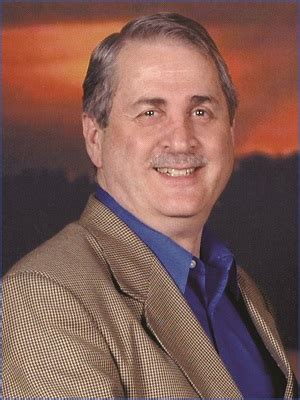A Quote by James Russell Lowell
If the devil take a less hateful shape to us than to our fathers, he is as busy with us as with them.
Related Quotes
The Americans say that we are ungrateful-but I ask them for heaven's sake, what should we be grateful to them for-for murdering our fathers and mothers?-Or do they wish us to return thanks to them for chaining and handcuffing us, branding us, cramming fire down our throats, or for keeping us in slavery, and beating us nearly or quite to death to make us work in ignorance and miseries, to support them and their families. They certainly think we are a gang of fools.
I'm not saying that all women are blameless - all women are not. There are women with despicable characters who are cruel and terrible and some of them are mothers. But why do we blame our mothers more than our fathers? We let our fathers get away scot-free. We hardly even knew who they were in many cases, given the way this culture raises kids, and they may have been quite cruel. They may even have raped us as children, but even if they raped us, we will blame our mothers for not protecting us instead of blaming our fathers who actually did it.
The devil has been painted swarthy, cloven-footed, horned, and hideous. Do we expect to see him in that shape? O, surely it would be better for us, if he did come in that shape! The trouble is the devil never does come in that shape. He comes by chance, with unregistered signals, and in all sorts of counterfeit presentiments.
As humans, we are rarely anything more than children that have let the changes to the size and shape of our genitals convince us that there are more important things in life than wonder and happiness. we call the acceptence of this change 'growing up' and it makes us feel big and powerful in a world that would be no less mysterious to us than it was before if all of the fantasizing that we once used to explore the "unknown" quality of our reality had not become devoted almost exclusively to the notion that we are in control.
It is not that fathers are better or worse, not that they are more loved or criticized, but rather that they are viewed with far less intensity. There is no Philip Roth or Woody Allen or Nancy Friday who writes about fathers with a runaway excess of humor, horror ... feeling. Most of us let our fathers off the hook.
The very shape of our dreams defines us. We learn about the world and try out our thoughts and visions in them. Our dreams goad us and drive us and summon and sustain us and when we are old they comfort us. Magic is a kind of dream, and love is a dream, and hope is a dream. Without our dreams, there is no sweetness, no purpose to life.
It’s a New Year and with it comes a fresh opportunity to shape our world. So this is my wish, a wish for me as much as it is a wish for you: in the world to come, let us be brave – let us walk into the dark without fear, and step into the unknown with smiles on our faces, even if we’re faking them. And whatever happens to us, whatever we make, whatever we learn, let us take joy in it. We can find joy in the world if it’s joy we’re looking for, we can take joy in the act of creation. So that is my wish for you, and for me. Bravery and joy.
The storyteller is deep inside everyone of us. The story-maker is always with us. Let us suppose our world is attacked by war, by the horrors that we all of us easily imagine. Let us suppose floods wash through our cities, the seas rise . . . but the storyteller will be there, for it is our imaginations which shape us, keep us, create us - for good and for ill. It is our stories that will recreate us, when we are torn, hurt, even destroyed. It is the storyteller, the dream-maker, the myth-maker, that is our phoenix, that represents us at our best, and at our most creative.
When we build ... let it not be for present delights nor for present use alone. Let it be such work as our descendants will thank us for, and let us think ... that a time is to come when these stones will be held sacred because our hands have touched them, and that men will say as they look upon the labor, and the wrought substance of them, See! This our fathers did for us!






































